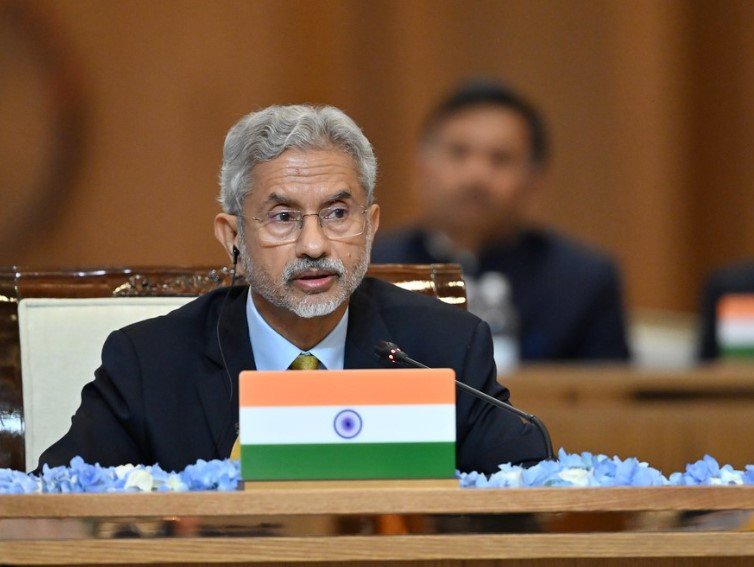Ministers to explain India’s diplomatic and security response to Pahalgam attack amid growing domestic scrutiny
A high-stakes debate is set to intensify in Parliament today as External Affairs Minister S Jaishankar and Leader of the House JP Nadda prepare to address the Rajya Sabha on Operation Sindoor — the government’s military and diplomatic response to the April 22 terror attack in Pahalgam.
The discussion, already underway in both Houses of Parliament, has become a political lightning rod, with the Opposition pushing for greater transparency and accountability, while the government is doubling down on its handling of the crisis. Home Minister Amit Shah is expected to deliver the final remarks, possibly turning today’s session into one of the most watched moments of the monsoon session.
Government’s Tight Schedule Sets the Tone
Jaishankar is slated to speak at 1 p.m. sharp, according to a senior government official, who confirmed that JP Nadda will follow around 3 p.m. That order isn’t coincidental. The strategy appears deliberate — let the diplomat lead with international positioning, and the party leader follow with political reinforcement.
The scheduling reflects the seriousness with which the Modi government is treating Operation Sindoor, which it sees not just as a counter-terror response, but also as a projection of India’s standing on the global stage.

Tensions have been building since Monday, when the Lok Sabha opened its discussion. The Rajya Sabha took it up Tuesday. Today’s session is being framed as the climax.
One senior MP, speaking off the record, said bluntly: “The floor fight today is going to be about who controls the narrative — New Delhi or the doubters.”
What We Know So Far About Operation Sindoor
Operation Sindoor was India’s immediate counter-response to the deadly Pahalgam ambush that killed nine soldiers in Kashmir’s Anantnag district. It began within 36 hours of the attack and included both targeted military action and a diplomatic blitz.
The government claims it has acted swiftly on both fronts:
-
Special Forces were deployed to secure key infiltration routes.
-
India sent formal communiqués to the United Nations.
-
Pressure was ramped up on countries seen as “harboring hostile elements.”
S Jaishankar, in his Lok Sabha speech earlier this week, zeroed in on the diplomatic tightrope walk at the United Nations Security Council, where Pakistan currently holds a non-permanent seat. “That’s not just a complication. That’s a test of will,” he said.
Opposition Gears Up for a Showdown
The Congress and other opposition parties are not planning to let today pass quietly.
They’ve repeatedly accused the government of “opaque operations” and using security events to deflect from internal policy debates. Senior Congress MP Jairam Ramesh posted on X: “We demand details, not drama. Parliament deserves clarity, not spin.”
Trinamool’s Derek O’Brien told reporters Tuesday, “They can’t just say ‘national security’ and shut the doors. We want facts.”
Government sources, meanwhile, say that while some operational specifics cannot be made public for obvious reasons, “there will be no ambiguity” in how Jaishankar and Nadda present the government’s side.
The tension was already evident in Monday’s Lok Sabha discussion, which saw multiple MPs walk out mid-session.
Amit Shah’s Turn: Fireworks Expected
Amit Shah’s speech, tentatively scheduled to close today’s discussion, could be one of the most politically charged moments of the monsoon session. The Home Minister is known for his confrontational tone when addressing matters of internal security and terrorism.
Last year, Shah stunned Parliament with a hard-hitting address after the Rajouri terror attack, taking direct aim at Pakistan and slamming opposition criticism. Expect something similar today.
One BJP insider said: “He’ll go all in. This is his turf — internal security, border operations, national pride.”
But that also means the risk of escalation. Shah’s tone could set off a wave of protests if opposition MPs feel cornered or dismissed.
The Parliament Timetable
Here’s a quick breakdown of the key events in Parliament regarding Operation Sindoor so far:
| Date | House | Key Speaker(s) | Notes |
|---|---|---|---|
| July 29 | Lok Sabha | Jaishankar, Amit Shah | Opening discussion, UN focus |
| July 30 | Rajya Sabha | Jaishankar (1 p.m.), JP Nadda (3 p.m.), Amit Shah (closing) | Main debate continues with wider scope |
| July 31 | Both Houses? | TBD | Possible vote or resolution, if tabled |
As of now, no formal resolution has been moved on Operation Sindoor, but several MPs are reportedly pushing for a statement of endorsement from both Houses.
What’s at Stake Politically?
For the BJP, the handling of Operation Sindoor could reinforce its image as a security-first government, just months before key state elections and less than a year before general elections. The party wants to send a signal that it responds to threats with both muscle and diplomacy.
For the opposition, today is a chance to punch holes in that narrative — or at least demand answers.
And for the public watching from outside, today’s Rajya Sabha debate might offer rare insight into how India balances war-room decisions with international chess moves.
